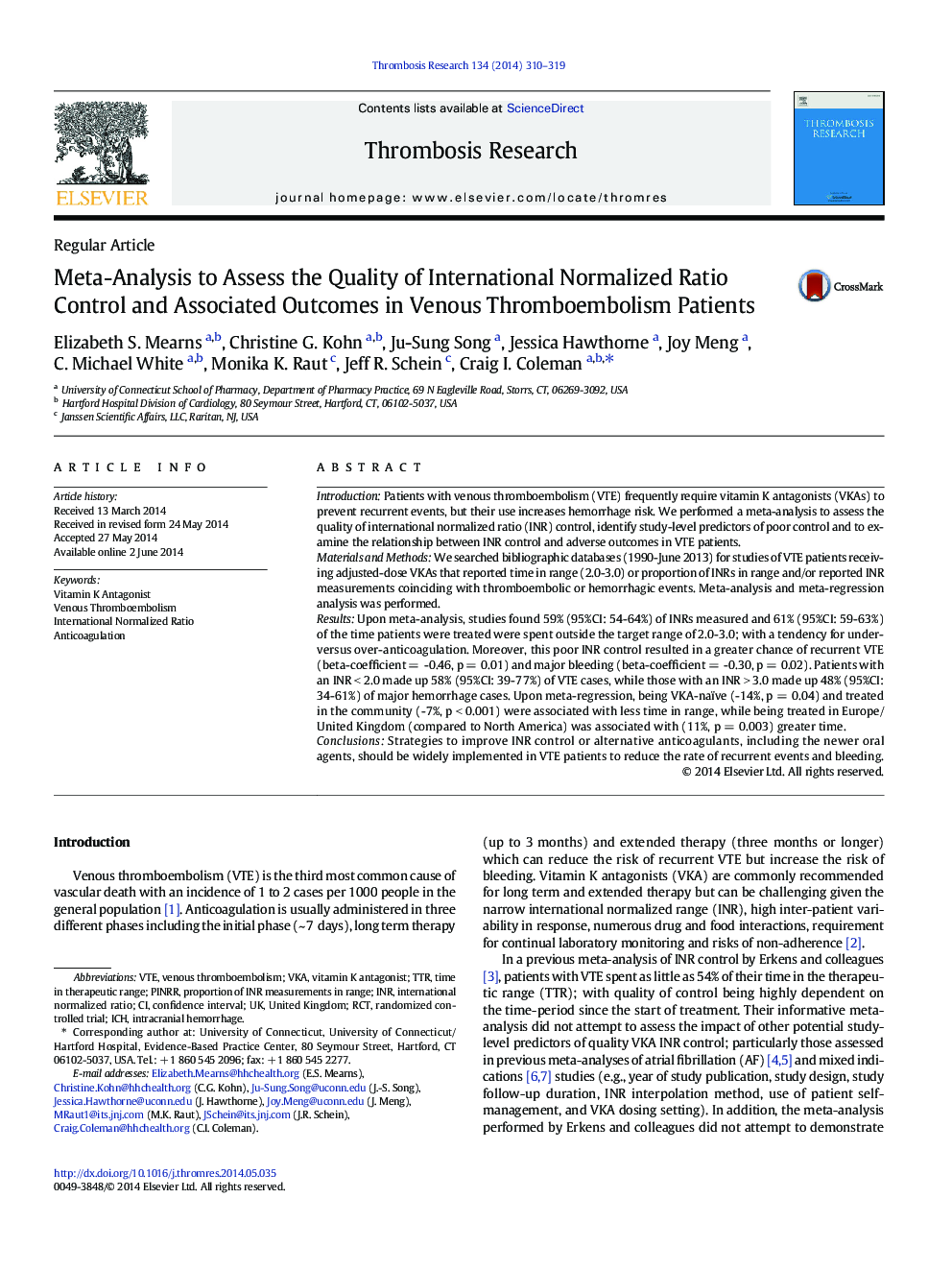| Article ID | Journal | Published Year | Pages | File Type |
|---|---|---|---|---|
| 6002303 | Thrombosis Research | 2014 | 10 Pages |
IntroductionPatients with venous thromboembolism (VTE) frequently require vitamin K antagonists (VKAs) to prevent recurrent events, but their use increases hemorrhage risk. We performed a meta-analysis to assess the quality of international normalized ratio (INR) control, identify study-level predictors of poor control and to examine the relationship between INR control and adverse outcomes in VTE patients.Materials and MethodsWe searched bibliographic databases (1990-June 2013) for studies of VTE patients receiving adjusted-dose VKAs that reported time in range (2.0-3.0) or proportion of INRs in range and/or reported INR measurements coinciding with thromboembolic or hemorrhagic events. Meta-analysis and meta-regression analysis was performed.ResultsUpon meta-analysis, studies found 59% (95%CI: 54-64%) of INRs measured and 61% (95%CI: 59-63%) of the time patients were treated were spent outside the target range of 2.0-3.0; with a tendency for under- versus over-anticoagulation. Moreover, this poor INR control resulted in a greater chance of recurrent VTE (beta-coefficient = -0.46, p = 0.01) and major bleeding (beta-coefficient = -0.30, p = 0.02). Patients with an INR < 2.0 made up 58% (95%CI: 39-77%) of VTE cases, while those with an INR > 3.0 made up 48% (95%CI: 34-61%) of major hemorrhage cases. Upon meta-regression, being VKA-naïve (-14%, p = 0.04) and treated in the community (-7%, p < 0.001) were associated with less time in range, while being treated in Europe/United Kingdom (compared to North America) was associated with (11%, p = 0.003) greater time.ConclusionsStrategies to improve INR control or alternative anticoagulants, including the newer oral agents, should be widely implemented in VTE patients to reduce the rate of recurrent events and bleeding.
